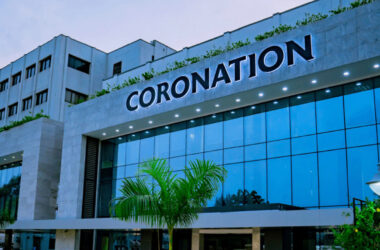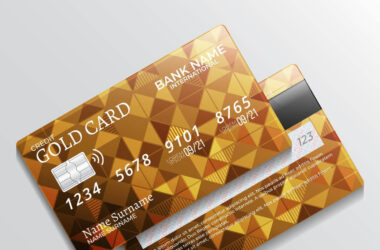Solar (or Photovoltaic cell) systems are gradually becoming a thing in Nigeria as an alternative power source. They are a cleaner, noiseless, easier to maintain alternative to generating sets but aren’t nearly as common.
The number of Nigerians without power supply has been put around 90 million people. That’s effectively half the population of the country. With a national power grid that is unable to meet the power needs of most Nigerians, people are having to look at alternative power sources that aren’t generating sets. The government is particularly focusing on such options as well – with its ban on low-cost generators last year. This is all in part of the government’s goal to cut down on emissions by 45% by 2030 according to The Nation – Nigeria.
The adoption rate for solar power is on the rise, though, with private companies providing solar power solutions to as many as 30,000 customers in central Nigeria alone. There are other such companies providing such services across the country as well. There are also homes and offices with solar panels as part of their power options, in addition to supply from the national grid and/or generators. The potential for solar energy is such that the following will very likely happen:
1. Demand will rise as sensitization increases:
At the moment, the demand for solar power systems doesn’t seem very high for one major reason: sensitization. There’s not a lot of information readily available to spur more people to opt for solar power. The demand is bound to rise as more information is put out there about the technology.
2. Prices will drop eventually:
There is the general notion that solar energy is still somewhat costlier than other more conventional energy sources. But this is due to the current scale of use. When demand rises and supply rises along with it, prices should drop as the adoption rate rises. Also, more companies like Lumos will spring up, providing subscription payment plans for users. This will help cut down on prices and increase adoption, as a lot more people can opt in for plans that are suitable to them.
3. More regulation:
At the moment, there isn’t proper regulation of the types of solar panels that are imported into the country. This has led to the rise in fake or substandard panels in the market. As sensitization increases – and the government focuses more on alternative energy sources – the regulation will be better to improve the quality of panels imported. More regulation will also mean that solar power dealers/operators will have their business processes subjected to checks by such regulations.

The Future of Solar in Nigeria
September 25, 2019
Read next
Motor Insurance 101: 5 Terms You Need to Know in Motor Insurance
August 13, 2021
Everyone wants their car to look as sleek as they first got it. No scratches, no dents, and no issues. But is…
3 min read
Home Insurance: Which Policy Should I get?
October 10, 2021
Home Insurance shouldn’t be considered a luxury, rather a necessity because it protects your home and belongings…
2 min read
Uneasy lies the head that wears the crown
May 11, 2022
Uneasy lies the head that wears the crown”. Small and Medium scaled business owners can attest to this. In…
1 min read
Every Question You Should Ask Before Getting a Car
March 15, 2021
Here’s what you’ll want to know before buying that car. Getting a car, especially in Lagos is not a luxury but…
2 min read










Some truly nice stuff on this website , I enjoy it.
Admiring the commitment you put into your site and detailed information you provide. It’s good to come across a blog every once in a while that isn’t the same out of date rehashed information. Wonderful read! I’ve saved your site and I’m adding your RSS feeds to my Google account.
Hello There. I found your blog using msn. This is an extremely well written article. I’ll be sure to bookmark it and come back to learn extra of your useful information. Thanks for the post. I’ll definitely comeback.
You are a very clever individual!
whoah this weblog is wonderful i like studying your articles. Stay up the good paintings! You recognize, a lot of individuals are searching around for this info, you can help them greatly.
I don’t unremarkably comment but I gotta say thankyou for the post on this special one : D.
It’s really a nice and useful piece of information. I am happy that you just shared this useful info with us. Please stay us informed like this. Thank you for sharing.
I couldn’t resist commenting
so much great info on here, : D.
I have been checking out some of your stories and i must say pretty nice stuff. I will definitely bookmark your site.
Hello there, You’ve done a great job. I will certainly digg it and personally recommend to my friends. I’m sure they’ll be benefited from this website.
That is the right blog for anybody who desires to seek out out about this topic. You understand so much its virtually arduous to argue with you (not that I actually would need…HaHa). You undoubtedly put a brand new spin on a topic thats been written about for years. Great stuff, just great!
Greetings! Quick question that’s entirely off topic. Do you know how to make your site mobile friendly? My website looks weird when viewing from my iphone4. I’m trying to find a theme or plugin that might be able to resolve this issue. If you have any recommendations, please share. Appreciate it!
Its great as your other articles : D, thankyou for putting up.
Hello.This article was extremely fascinating, particularly because I was investigating for thoughts on this issue last week.
Well I truly enjoyed studying it. This article offered by you is very effective for good planning.
Awsome blog! I am loving it!! Will be back later to read some more. I am taking your feeds also
Hello there, simply was alert to your weblog via Google, and found that it is really informative. I am going to be careful for brussels. I’ll appreciate in the event you proceed this in future. Lots of other folks will probably be benefited out of your writing. Cheers!
My programmer is trying to persuade me to move to .net from PHP. I have always disliked the idea because of the costs. But he’s tryiong none the less. I’ve been using Movable-type on several websites for about a year and am concerned about switching to another platform. I have heard excellent things about blogengine.net. Is there a way I can transfer all my wordpress posts into it? Any kind of help would be really appreciated!
Hi, Neat post. There is an issue with your site in internet explorer, would test this?K IE still is the marketplace leader and a large element of folks will omit your fantastic writing because of this problem.
An attention-grabbing discussion is value comment. I think that you should write extra on this matter, it might not be a taboo subject but usually people are not sufficient to talk on such topics. To the next. Cheers
Hi , I do believe this is an excellent blog. I stumbled upon it on Yahoo , i will come back once again. Money and freedom is the best way to change, may you be rich and help other people.
It’s truly a nice and useful piece of info. I am happy that you just shared this useful information with us. Please keep us up to date like this. Thank you for sharing.
Hey there just wanted to give you a quick heads up. The text in your content seem to be running off the screen in Opera. I’m not sure if this is a format issue or something to do with internet browser compatibility but I thought I’d post to let you know. The layout look great though! Hope you get the problem solved soon. Thanks
Hi , I do believe this is an excellent blog. I stumbled upon it on Yahoo , i will come back once again. Money and freedom is the best way to change, may you be rich and help other people.
I too believe thus, perfectly pent post! .
I just couldn’t depart your site prior to suggesting that I really enjoyed the standard information a person provide for your visitors? Is going to be back often to check up on new posts
Greetings from Colorado! I’m bored at work so I decided to check out your site on my iphone during lunch break. I really like the info you provide here and can’t wait to take a look when I get home. I’m surprised at how quick your blog loaded on my cell phone .. I’m not even using WIFI, just 3G .. Anyhow, wonderful site!
I really enjoy examining on this web site, it contains excellent posts.
I truly appreciate this post. I?¦ve been looking all over for this! Thank goodness I found it on Bing. You’ve made my day! Thx again
Real clear website , thanks for this post.
Rattling clean site, regards for this post.
It¦s actually a great and helpful piece of info. I am satisfied that you shared this helpful information with us. Please stay us informed like this. Thank you for sharing.
As a Newbie, I am constantly searching online for articles that can help me. Thank you
Whats up very cool website!! Guy .. Excellent .. Amazing .. I will bookmark your website and take the feeds alsoKI am happy to search out numerous helpful info right here within the submit, we need work out more strategies on this regard, thank you for sharing. . . . . .
I really enjoy studying on this internet site, it has got excellent articles. “Beauty in things exist in the mind which contemplates them.” by David Hume.
Hiya, I am really glad I have found this information. Nowadays bloggers publish only about gossips and net and this is actually annoying. A good web site with interesting content, that is what I need. Thank you for keeping this website, I will be visiting it. Do you do newsletters? Can not find it.
I genuinely enjoy reading on this internet site, it contains great posts. “Beware lest in your anxiety to avoid war you obtain a master.” by Demosthenes.
The heart of your writing whilst appearing agreeable originally, did not sit perfectly with me personally after some time. Somewhere throughout the sentences you were able to make me a believer unfortunately just for a while. I still have a problem with your jumps in logic and you might do nicely to fill in those breaks. If you actually can accomplish that, I will surely be fascinated.
You have brought up a very wonderful details, regards for the post.
You made a number of nice points there. I did a search on the theme and found a good number of persons will have the same opinion with your blog.
Useful information. Fortunate me I found your website by accident, and I’m stunned why this twist of fate didn’t took place in advance! I bookmarked it.
Hey I am so delighted I found your website, I really found you by mistake, while I was searching on Yahoo for something else, Nonetheless I am here now and would just like to say thank you for a remarkable post and a all round enjoyable blog (I also love the theme/design), I don’t have time to look over it all at the minute but I have saved it and also added your RSS feeds, so when I have time I will be back to read much more, Please do keep up the great job.
Hello. remarkable job. I did not imagine this. This is a excellent story. Thanks!
Thanks , I have just been searching for info about this topic for ages and yours is the greatest I’ve discovered till now. But, what about the bottom line? Are you sure about the source?
whoah this blog is wonderful i really like studying your posts. Stay up the great paintings! You realize, many people are looking round for this information, you can aid them greatly.
You could definitely see your enthusiasm within the work you write. The sector hopes for even more passionate writers such as you who are not afraid to say how they believe. All the time follow your heart. “Faith in the ability of a leader is of slight service unless it be united with faith in his justice.” by George Goethals.
Enjoyed looking through this, very good stuff, thankyou.
Spot on with this write-up, I really suppose this web site wants much more consideration. I’ll in all probability be again to learn much more, thanks for that info.
I have been reading out some of your posts and i must say pretty clever stuff. I will make sure to bookmark your site.
Greetings! I’ve been reading your blog for a long time now and finally got the courage to go ahead and give you a shout out from Humble Texas! Just wanted to say keep up the great work!
Thank you for the sensible critique. Me & my neighbor were just preparing to do a little research about this. We got a grab a book from our area library but I think I learned more clear from this post. I am very glad to see such magnificent info being shared freely out there.
Hello.This post was extremely interesting, especially because I was looking for thoughts on this matter last Saturday.
When I originally commented I clicked the -Notify me when new comments are added- checkbox and now each time a comment is added I get four emails with the same comment. Is there any way you can remove me from that service? Thanks!
Write more, thats all I have to say. Literally, it seems as though you relied on the video to make your point. You obviously know what youre talking about, why throw away your intelligence on just posting videos to your site when you could be giving us something informative to read?
I just couldn’t depart your web site prior to suggesting that I extremely enjoyed the standard info a person provide for your visitors? Is gonna be back often to check up on new posts
When I originally commented I clicked the -Notify me when new comments are added- checkbox and now each time a comment is added I get four emails with the same comment. Is there any way you can remove me from that service? Thanks!
It’s actually a cool and helpful piece of info. I’m glad that you shared this helpful information with us. Please keep us up to date like this. Thanks for sharing.
Absolutely written subject matter, Really enjoyed looking through.
I do agree with all the ideas you’ve introduced in your post. They are really convincing and can certainly work. Still, the posts are very quick for newbies. May you please lengthen them a bit from subsequent time? Thank you for the post.
Utterly indited content, Really enjoyed looking at.
he blog was how do i say it… relevant, finally something that helped me. Thanks
I am no longer sure where you are getting your info, however great topic. I must spend a while studying more or figuring out more. Thanks for fantastic information I used to be in search of this information for my mission.
I’ve been absent for a while, but now I remember why I used to love this website. Thank you, I?¦ll try and check back more frequently. How frequently you update your site?
I was suggested this website by my cousin. I’m not sure whether this post is written by him as no one else know such detailed about my trouble. You’re incredible! Thanks!
I’m still learning from you, as I’m improving myself. I definitely liked reading all that is posted on your blog.Keep the posts coming. I enjoyed it!
Hmm is anyone else experiencing problems with the pictures on this blog loading? I’m trying to determine if its a problem on my end or if it’s the blog. Any responses would be greatly appreciated.
Loving the information on this internet site, you have done great job on the articles.
I believe you have noted some very interesting details, appreciate it for the post.
I have recently started a web site, the information you provide on this website has helped me greatly. Thanks for all of your time & work.
I genuinely enjoy studying on this internet site, it has excellent articles. “Do what you fear, and the death of fear is certain.” by Anthony Robbins.
I truly appreciate this post. I?¦ve been looking everywhere for this! Thank goodness I found it on Bing. You have made my day! Thanks again
Wonderful beat ! I wish to apprentice at the same time as you amend your site, how could i subscribe for a weblog site? The account aided me a acceptable deal. I had been a little bit acquainted of this your broadcast offered bright clear idea
Whats Taking place i’m new to this, I stumbled upon this I have discovered It absolutely helpful and it has helped me out loads. I hope to contribute & help other customers like its helped me. Good job.
Hi, just required you to know I he added your site to my Google bookmarks due to your layout. But seriously, I believe your internet site has 1 in the freshest theme I??ve came across. It extremely helps make reading your blog significantly easier.
I will right away grab your rss feed as I can’t find your e-mail subscription link or e-newsletter service. Do you have any? Kindly let me know in order that I could subscribe. Thanks.
Hi, i read your blog occasionally and i own a similar one and i was just curious if you get a lot of spam responses? If so how do you prevent it, any plugin or anything you can recommend? I get so much lately it’s driving me insane so any assistance is very much appreciated.
Thanks – Enjoyed this blog post, how can I make is so that I receive an alert email every time there is a fresh article?
Good day! Do you know if they make any plugins to assist with SEO? I’m trying to get my blog to rank for some targeted keywords but I’m not seeing very good results. If you know of any please share. Many thanks!
Sweet blog! I found it while searching on Yahoo News. Do you have any tips on how to get listed in Yahoo News? I’ve been trying for a while but I never seem to get there! Thank you
Some really superb content on this internet site, thanks for contribution.
I like this website very much, Its a rattling nice billet to read and receive information.
Hello there! I know this is kinda off topic but I was wondering if you knew where I could locate a captcha plugin for my comment form? I’m using the same blog platform as yours and I’m having difficulty finding one? Thanks a lot!
Thank you for the good writeup. It in fact was a amusement account it. Look advanced to far added agreeable from you! By the way, how can we communicate?
F*ckin’ remarkable things here. I’m very glad to see your post. Thanks a lot and i am looking forward to contact you. Will you kindly drop me a mail?
The next time I learn a weblog, I hope that it doesnt disappoint me as a lot as this one. I imply, I do know it was my option to learn, but I actually thought youd have one thing interesting to say. All I hear is a bunch of whining about something that you can fix for those who werent too busy on the lookout for attention.
Thank you for the good writeup. It if truth be told was once a enjoyment account it. Glance complex to more introduced agreeable from you! By the way, how can we be in contact?
I gotta favorite this website it seems handy invaluable
I haven’t checked in here for some time as I thought it was getting boring, but the last several posts are great quality so I guess I will add you back to my daily bloglist. You deserve it my friend 🙂
I have read several good stuff here. Definitely worth bookmarking for revisiting. I wonder how much effort you put to make such a magnificent informative website.
F*ckin’ amazing things here. I’m very happy to look your article. Thank you so much and i’m taking a look forward to touch you. Will you kindly drop me a mail?
But a smiling visitant here to share the love (:, btw great style and design.
I wanted to thank you for this great read!! I definitely enjoying every little bit of it I have you bookmarked to check out new stuff you post…
Woah! I’m really loving the template/theme of this website. It’s simple, yet effective. A lot of times it’s very difficult to get that “perfect balance” between usability and visual appearance. I must say you have done a fantastic job with this. Additionally, the blog loads very quick for me on Internet explorer. Exceptional Blog!
I like the valuable information you provide in your articles. I will bookmark your weblog and check again here regularly. I am quite sure I will learn lots of new stuff right here! Good luck for the next!
I very lucky to find this site on bing, just what I was looking for : D likewise saved to bookmarks.
Dead written written content, Really enjoyed looking through.
I was recommended this website by my cousin. I am not sure whether this post is written by him as no one else know such detailed about my trouble. You’re wonderful! Thanks!
As a Newbie, I am permanently browsing online for articles that can help me. Thank you
hi!,I love your writing very so much! proportion we keep up a correspondence more approximately your article on AOL? I require an expert in this area to unravel my problem. Maybe that’s you! Having a look ahead to look you.
I like this post, enjoyed this one thank you for putting up. “Abortion is advocated only by persons who have themselves been born.” by Ronald Reagan.
I was very pleased to find this web-site.I wanted to thanks for your time for this wonderful read!! I definitely enjoying every little bit of it and I have you bookmarked to check out new stuff you blog post.
This really answered my problem, thank you!
You made some first rate points there. I appeared on the internet for the issue and found most people will associate with together with your website.
Thank you for sharing excellent informations. Your website is so cool. I’m impressed by the details that you’ve on this blog. It reveals how nicely you perceive this subject. Bookmarked this website page, will come back for more articles. You, my friend, ROCK! I found just the info I already searched everywhere and just couldn’t come across. What a perfect web-site.
Rattling wonderful info can be found on web site.
Super-Duper blog! I am loving it!! Will come back again. I am taking your feeds also.
USA Flights 24 — search engine helps you compare prices from hundreds of airlines and travel sites in seconds — so you can find cheap flights fast. Whether you’re planning a weekend getaway, a cross-country adventure, or an international vacation, we make it easy to fly for less.
I besides think thus, perfectly indited post! .
I do love the manner in which you have presented this specific difficulty and it does supply me personally some fodder for consideration. However, because of what I have seen, I really wish as the actual opinions stack on that men and women keep on issue and not embark upon a soap box of some other news of the day. Anyway, thank you for this exceptional point and though I can not necessarily agree with it in totality, I regard the perspective.
I’m not sure where you’re getting your information, but good topic. I needs to spend some time learning more or understanding more. Thanks for excellent information I was looking for this information for my mission.
Thanks a bunch for sharing this with all people you really know what you’re talking approximately! Bookmarked. Kindly also talk over with my site =). We will have a hyperlink change contract between us!
Well I definitely enjoyed studying it. This post procured by you is very effective for correct planning.
Absolutely written written content, appreciate it for selective information. “You can do very little with faith, but you can do nothing without it.” by Samuel Butler.
Some times its a pain in the ass to read what people wrote but this site is real user genial! .
You actually make it seem so easy along with your presentation however I to find this matter to be actually something that I feel I’d never understand. It kind of feels too complex and extremely large for me. I am looking forward in your subsequent put up, I?¦ll attempt to get the hold of it!
Sweet internet site, super design and style, rattling clean and use friendly.
Very interesting topic, thanks for posting. “Challenge is a dragon with a gift in its mouthTame the dragon and the gift is yours.” by Noela Evans.
NuStar is commonly recognized as a digital brand associated with online platform services. The name is often used to describe a unified ecosystem where users can access content through web-based or app-based interfaces, focusing on convenience and accessibility.
You got a very fantastic website, Gladiola I noticed it through yahoo.
hi!,I really like your writing very so much! percentage we keep up a correspondence more about your article on AOL? I need an expert on this area to solve my problem. May be that’s you! Looking forward to look you.
奥美迦奥特曼高清完整版采用机器学习个性化推荐,海外华人可免费观看最新热播剧集。
Wonderful blog! I found it while surfing around on Yahoo News. Do you have any tips on how to get listed in Yahoo News? I’ve been trying for a while but I never seem to get there! Cheers
It¦s actually a cool and helpful piece of information. I am glad that you just shared this helpful information with us. Please stay us up to date like this. Thanks for sharing.
Hi! I’ve been reading your blog for a long time now and finally got the bravery to go ahead and give you a shout out from Dallas Texas! Just wanted to mention keep up the fantastic work!
I and my pals appeared to be viewing the excellent advice on your site and so all of the sudden I got an awful suspicion I never thanked the blog owner for those secrets. The boys are already totally joyful to read through all of them and have in effect clearly been tapping into those things. Thanks for genuinely really considerate and then for opting for such fine useful guides most people are really eager to learn about. My very own sincere apologies for not saying thanks to you earlier.
Thanx for the effort, keep up the good work Great work, I am going to start a small Blog Engine course work using your site I hope you enjoy blogging with the popular BlogEngine.net.Thethoughts you express are really awesome. Hope you will right some more posts.
I am really enjoying the theme/design of your site. Do you ever run into any browser compatibility problems? A small number of my blog visitors have complained about my website not working correctly in Explorer but looks great in Chrome. Do you have any suggestions to help fix this issue?
You made some nice points there. I looked on the internet for the issue and found most persons will go along with with your site.
Would you be inquisitive about exchanging links?
Great write-up, I’m regular visitor of one’s web site, maintain up the excellent operate, and It is going to be a regular visitor for a long time.
Very nice article and straight to the point. I am not sure if this is in fact the best place to ask but do you folks have any thoughts on where to get some professional writers? Thank you 🙂
I was reading through some of your posts on this internet site and I conceive this site is real informative ! Keep on putting up.
Magnificent goods from you, man. I’ve understand your stuff previous to and you are just extremely magnificent. I really like what you have acquired here, really like what you are saying and the way in which you say it. You make it enjoyable and you still care for to keep it sensible. I can’t wait to read far more from you. This is really a terrific web site.
Thank you for some other informative blog. Where else may just I get that type of info written in such an ideal method? I’ve a venture that I’m just now running on, and I have been on the look out for such info.
I will right away take hold of your rss as I can’t in finding your e-mail subscription link or newsletter service. Do you’ve any? Kindly permit me realize so that I may subscribe. Thanks.
Very clean site, thankyou for this post.
I’ve recently started a website, the info you offer on this website has helped me tremendously. Thank you for all of your time & work.
Greetings! I’ve been following your web site for a while now and finally got the bravery to go ahead and give you a shout out from Dallas Texas! Just wanted to say keep up the fantastic job!
Wow, awesome blog layout! How long have you been blogging for? you make blogging look easy. The overall look of your web site is magnificent, let alone the content!
What i do not realize is in fact how you are no longer really much more smartly-preferred than you might be now. You’re so intelligent. You know thus considerably relating to this subject, produced me in my view consider it from numerous varied angles. Its like women and men aren’t fascinated unless it’s one thing to do with Woman gaga! Your personal stuffs great. At all times deal with it up!
I like this post, enjoyed this one thankyou for posting.
Really fantastic information can be found on weblog. “An executive is a person who always decides sometimes he decides correctly, but he always decides.” by John H. Patterson.
Hello very nice web site!! Guy .. Beautiful .. Amazing .. I will bookmark your website and take the feeds also?KI am satisfied to find so many useful information here within the submit, we need develop more strategies on this regard, thanks for sharing. . . . . .
I am now not sure where you are getting your info, however good topic. I must spend a while studying more or understanding more. Thank you for great info I was searching for this info for my mission.
Hmm it seems like your website ate my first comment (it was extremely long) so I guess I’ll just sum it up what I submitted and say, I’m thoroughly enjoying your blog. I as well am an aspiring blog writer but I’m still new to everything. Do you have any recommendations for beginner blog writers? I’d definitely appreciate it.
Good info. Lucky me I reach on your website by accident, I bookmarked it.
You completed various good points there. I did a search on the subject and found a good number of people will consent with your blog.
What i don’t realize is actually how you’re not really much more well-liked than you might be right now. You are very intelligent. You realize therefore considerably relating to this subject, produced me personally consider it from so many varied angles. Its like men and women aren’t fascinated unless it’s one thing to do with Lady gaga! Your own stuffs great. Always maintain it up!
I like this blog its a master peace ! Glad I detected this on google .
After I initially commented I clicked the -Notify me when new feedback are added- checkbox and now every time a comment is added I get 4 emails with the identical comment. Is there any manner you can remove me from that service? Thanks!
Hi! Do you know if they make any plugins to assist with SEO? I’m trying to get my blog to rank for some targeted keywords but I’m not seeing very good gains. If you know of any please share. Kudos!
It is the best time to make some plans for the future and it’s time to be happy. I’ve read this post and if I could I wish to suggest you few interesting things or advice. Maybe you could write next articles referring to this article. I desire to read more things about it!
Great blog here! Also your website loads up very fast! What web host are you using? Can I get your affiliate link to your host? I wish my website loaded up as fast as yours lol
Thank you for sharing superb informations. Your site is very cool. I am impressed by the details that you’ve on this web site. It reveals how nicely you perceive this subject. Bookmarked this web page, will come back for extra articles. You, my friend, ROCK! I found simply the information I already searched all over the place and just could not come across. What a perfect site.
I’d have to examine with you here. Which is not one thing I usually do! I take pleasure in reading a post that may make folks think. Additionally, thanks for permitting me to comment!
Nice post. I learn something more challenging on different blogs everyday. It will always be stimulating to read content from other writers and practice a little something from their store. I’d prefer to use some with the content on my blog whether you don’t mind. Natually I’ll give you a link on your web blog. Thanks for sharing.
I will right away take hold of your rss feed as I can’t to find your e-mail subscription hyperlink or newsletter service. Do you’ve any? Kindly allow me recognize in order that I could subscribe. Thanks.
Absolutely indited subject material, Really enjoyed reading through.
It’s a pity you don’t have a donate button! I’d most certainly donate to this superb blog! I suppose for now i’ll settle for book-marking and adding your RSS feed to my Google account. I look forward to brand new updates and will talk about this website with my Facebook group. Chat soon!
奥美迦奥特曼高清完整版,海外华人可免费观看最新热播剧集。
Woh I like your blog posts, saved to favorites! .
This is really interesting, You’re a very skilled blogger. I’ve joined your feed and look forward to seeking more of your excellent post. Also, I’ve shared your site in my social networks!
戏台在线免费在线观看,海外华人专属官方认证平台,高清无广告体验。
Simply want to say your article is as astonishing. The clarity in your post is simply great and i can assume you’re an expert on this subject. Fine with your permission let me to grab your feed to keep up to date with forthcoming post. Thanks a million and please keep up the enjoyable work.
I got what you intend,saved to bookmarks, very nice internet site.
Wow, awesome blog layout! How long have you been blogging for? you made blogging look easy. The overall look of your site is excellent, as well as the content!
An attention-grabbing discussion is worth comment. I feel that you need to write extra on this matter, it may not be a taboo subject however usually individuals are not enough to speak on such topics. To the next. Cheers
I couldn’t resist commenting
I will right away take hold of your rss as I can’t find your email subscription hyperlink or newsletter service. Do you’ve any? Kindly let me know in order that I may just subscribe. Thanks.
Your style is so unique compared to many other people. Thank you for publishing when you have the opportunity,Guess I will just make this bookmarked.2
I am not rattling good with English but I line up this real easy to read .
hello there and thank you for your info – I’ve certainly picked up anything new from right here. I did however expertise some technical issues using this website, as I experienced to reload the site a lot of times previous to I could get it to load correctly. I had been wondering if your web host is OK? Not that I am complaining, but sluggish loading instances times will very frequently affect your placement in google and could damage your high-quality score if advertising and marketing with Adwords. Well I’m adding this RSS to my e-mail and can look out for much more of your respective interesting content. Make sure you update this again very soon..
Pretty! This was a really wonderful post. Thank you for your provided information.
you’re in reality a just right webmaster. The web site loading speed is amazing. It sort of feels that you are doing any unique trick. In addition, The contents are masterpiece. you’ve done a great job on this matter!
Woh I like your articles, saved to fav! .
I’m really impressed with your writing skills and also with the layout on your weblog. Is this a paid theme or did you modify it yourself? Either way keep up the nice quality writing, it is rare to see a nice blog like this one these days..
F*ckin¦ amazing things here. I am very glad to see your post. Thanks a lot and i am having a look forward to contact you. Will you kindly drop me a e-mail?
Great post. I am facing a couple of these problems.
Hmm is anyone else encountering problems with the pictures on this blog loading? I’m trying to find out if its a problem on my end or if it’s the blog. Any feed-back would be greatly appreciated.
Do you have a spam issue on this site; I also am a blogger, and I was curious about your situation; we have developed some nice methods and we are looking to trade solutions with others, be sure to shoot me an e-mail if interested.
I was recommended this website by my cousin. I am not sure whether this post is written by him as no one else know such detailed about my problem. You are incredible! Thanks!
Whats up very nice website!! Man .. Beautiful .. Amazing .. I will bookmark your site and take the feeds also…I’m glad to seek out numerous useful info here within the submit, we want develop more techniques on this regard, thanks for sharing. . . . . .
I cling on to listening to the news update lecture about getting boundless online grant applications so I have been looking around for the top site to get one. Could you advise me please, where could i get some?
As I website possessor I think the written content here is rattling superb, regards for your efforts.
I do agree with all of the ideas you have presented in your post. They’re very convincing and will definitely work. Still, the posts are too short for novices. Could you please extend them a bit from next time? Thanks for the post.
After study a few of the blog posts on your website now, and I truly like your way of blogging. I bookmarked it to my bookmark website list and will be checking back soon. Pls check out my web site as well and let me know what you think.
This is a very good tips especially to those new to blogosphere, brief and accurate information… Thanks for sharing this one. A must read article.
I haven’t checked in here for some time as I thought it was getting boring, but the last several posts are good quality so I guess I’ll add you back to my everyday bloglist. You deserve it my friend 🙂
I just couldn’t go away your site prior to suggesting that I really loved the standard information an individual provide in your guests? Is going to be again regularly to check out new posts
Online casino Australia real money easy withdrawal – fast cashouts
There may be noticeably a bundle to know about this. I assume you made sure nice points in features also.
I reckon something truly special in this web site.
Some truly superb blog posts on this site, thanks for contribution.
Thanks for the article, can you make it so I get an email whenever there is a fresh article?
I’d have to examine with you here. Which is not one thing I usually do! I take pleasure in reading a post that may make folks think. Additionally, thanks for permitting me to comment!
Sweet website , super style and design, really clean and utilize genial.
I respect your work, appreciate it for all the great content.